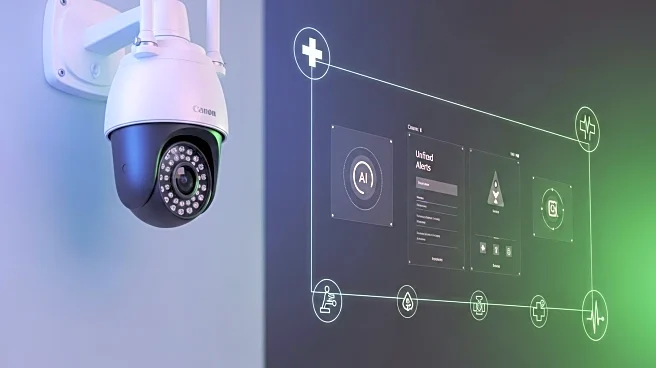What's Happening?
Advancements in healthcare security technology are significantly reducing false alarms, which have been a persistent issue affecting efficiency and patient care. Unified security platforms integrate various components such as access control logs, video surveillance, and IoT data, allowing for quicker assessment and resolution of incidents. These platforms utilize advanced camera analytics to accurately identify threats, such as unauthorized access or aggressive behavior, and automate incident response actions. Collaborative decision management systems further enhance security by grouping detected events that may indicate a threat, providing essential context for staff response. Real-Time Location Systems (RTLS) improve emergency response times by enabling precise tracking of alarms and asset management. Open systems offer scalability and flexibility, allowing healthcare facilities to integrate new technologies as regulations evolve.
Why It's Important?
Reducing false alarms in healthcare settings is crucial for improving patient care and staff efficiency. False alarms can lead to alarm fatigue, where staff may start to disregard alerts, potentially compromising patient safety. By implementing unified security platforms and AI-driven analytics, healthcare facilities can ensure that staff receive only qualified alarms, allowing them to focus on critical tasks. This technological advancement not only enhances security but also contributes to better coordination of service delivery, leading to cost savings and improved patient recovery and comfort. As healthcare facilities face increasing challenges, such as workplace violence and stressful conditions, these solutions provide a vital tool for maintaining a safe and efficient environment.
Beyond the Headlines
The integration of unified security platforms in healthcare settings may lead to broader implications, such as improved compliance with regulatory standards and enhanced data privacy measures. As these systems become more prevalent, there could be a shift towards more proactive security management, where potential threats are identified and addressed before they escalate. The use of AI and IoT in healthcare security also raises ethical considerations regarding data usage and surveillance, necessitating clear policies to protect patient privacy. Long-term, these advancements could drive innovation in healthcare technology, fostering a culture of continuous improvement and adaptation to emerging threats.









